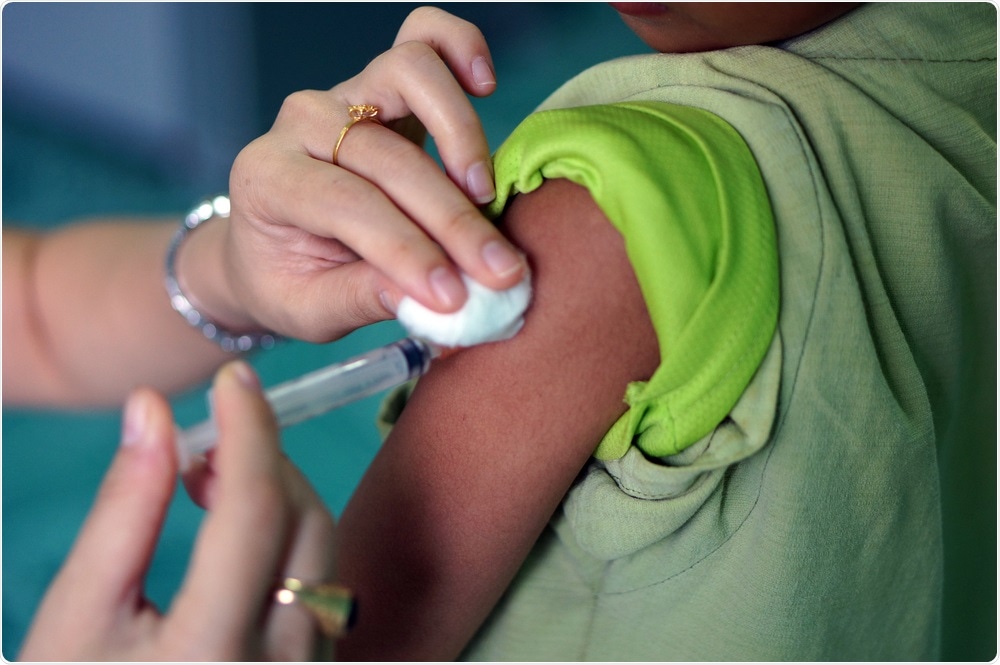
The World Health Organization (WHO) and the Congolese government have said it should take just over a week to carry out the emergency intervention, which aims to target more than 800,000 children.
The WHO has called the outbreak the world’s largest and fastest moving epidemic; it has claimed more lives this year among the Congolese people than Ebola has.
Measles is a highly infectious, untreatable viral disease that can lead to severe health complications, including lung and brain infections. The only way to combat it is through vaccination and by treating symptoms in the hope that a person will be able to survive and stay strong long enough to clear the virus.
The epidemic is the deadliest yet in the Democratic Republic of Congo (DR Congo)
The measles epidemic, which was announced in the DR Congo on the 10th June, is the deadliest one the country has had to face since 2011. Between the start of 2019 and early August, the virus has infected more than 145,000 people and killed 2,758. Now the death toll has risen to more than 3,500.Unlike the Ebola epidemic in the east of the country which has attracted the attention of multiple organization and hundreds of million dollars in aid, only US$2.5 million of the US$8.9 million needed for the Health Cluster response plan has so far been raised.
Furthermore, getting vaccines to the places where children need them presents a huge challenge. The vaccines need to be kept at a specific temperature, which means setting up a “cold chain,” that includes refrigerators, generators, fuel, fast transportation, and a maintenance system.
Pierre Van Heddegem, Field Coordinator of Médecins Sans Frontières (MSF) measles emergency team, says many regions do not receive the necessary support, despite the evident need.
Two months after the official declaration and few weeks before the start of the school year, the measles epidemic shows no signs of slowing down. In fact, since July the epidemic has worsened, with a rise in new cases reported in several provinces.”
Karel Janssens, MSF Head of Mission in DR Congo
Deaths from measles have overtaken Ebola
Measles has a much lower mortality rate than Ebola (about 2% versus 60%), but there have been more than 165,000 suspected cases of measles and more than 3,500 fatalities since the beginning of 2019.This alarming number of fatalities is far higher than that for Ebola. In the week ending August 11th, 5,600 measles cases had been reported and 141 people had died. This compares with only 63 Ebola cases and 45 deaths, meaning that measles is killing about three times more people than Ebola is every week.
Measles has spread to every province in the DR Congo
Despite previous rounds of immunization, measles has now across the whole of the DR Congo, partly due to a lack of routine access to healthcare facilities and vaccinations.Cases of measles have been reported in every one of the country’s 26 provinces, all of which are struggling to control the outbreak.
The DRC is experiencing a dire situation because too many children were missed by routine immunisation. The outbreak] is deadly because the case management is not there.”
Deo Nshimirimana, WHO Representative
Nshimirimana also says the resources to prevent the disease and deaths form the disease are lacking, meaning measles is very deadly in the country. Even the best of efforts to prevent measles are not enough without the resources and supplies that are needed to manage the infection.
The WHO says the new campaign will aim to vaccinate about 825,000 children in 24 of the provinces over a period of nine days.
According to a statement by the agency, "As of 17 September, a total of 183,837 suspected measles cases (5,989 confirmed) had been reported in 192 of the 519 health zones nationwide, including 3,667 deaths - which exceeds the number of deaths due to Ebola. Nearly all the deaths have been children.”
Insecurity and distrust are not helping
In the East of the country, Ebola has caused more than 2,100 deaths since August last year and is the second-largest recorded outbreak of the disease. The largest epidemic ravaged parts of West Africa between 2014 and 2016, killing more than 11,000 people.One of the reasons the country has struggled to control the outbreak is people’s insecurity and suspicious attitude towards treatment.
The people in many local communities do not trust medical workers, a problem that stems from years of conflict and regional isolation.
In some parts of the country, the distrust has previously led to locals acting violently towards what they perceive as “wealthy” and “foreign” humanitarian aid workers. This resulted in many healthcare facilities being closed, which stalled the containment response for both Ebola and measles.
Owing to a combination of rumors about Ebola being fabricated, conspiracies surrounding immunization programs and deeply rooted cultural beliefs, the challenges in getting aid to the people who need it do not seem to be ending any time soon.
United Nations Press Release. (2019). DR Congo President outlines vision for a ‘more representative’ UN Security Council. UN News.






No comments
Post a Comment